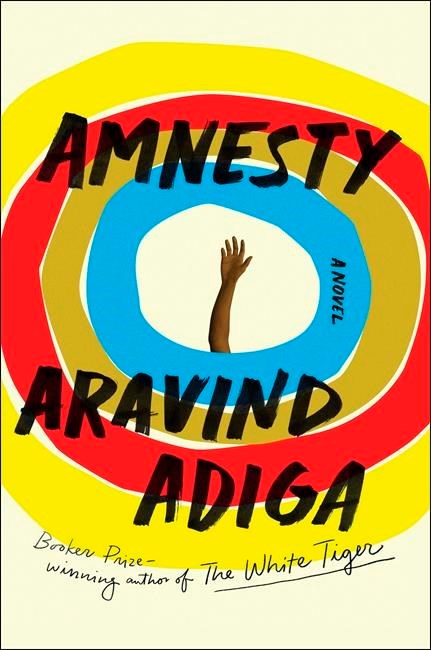“Amnesty,” Scribner, by Aravind Adiga
There is a lot that’s satisfying about “Amnesty,” the new book by Aravind Adiga, but it’s also a frustrating read.
The premise is clever: Danny is an undocumented immigrant in Sydney, Australia, trying to live openly yet under the radar of authorities to avoid deportation. From Sri Lanka, our protagonist cleans homes for cash and lives in a small grocery storeroom. He meets his girlfriend, Sonja, online.
Danny yearns to be a legal citizen. He has lived hidden in the open for four years, learning from locals how to make his way undetected. He studiously rid himself of his foreign accent, added golden highlights to his hair and developed the bearing of a native Australian – with an erect back and the casual indifference of a free man.
“Easiest thing in the world, becoming invisible to white people, who don’t see you anyway; but the hardest thing is becoming invisible to brown people, who will see you no matter what,” intones the Booker Prize-winning author of “The White Tiger.”
Enter the critical drama: One morning Danny learns a client has been murdered, and he thinks he knows the murderer. For the duration of the book’s 250-plus pages – and it’s most of the book – Danny wrestles with what to do: Does he share what he knows with the authorities and risk deportation?
The answer disentangles throughout the rest of this one day – marked off in increments of time rather than chapters – as Danny wrestles with his past, his dreams, his reality and, ultimately, his conscience.
This leads us to what’s so good and effective about Adiga’s novel: It takes the reader inside the cautious, furtive world of an undocumented immigrant who clings to hope but lives with so much fear and paranoia. In all of its minutiae and incredible detail, these pages call attention to the real heartbreak of undocumented people who dream of a better existence – not only in Australia but in the United States and elsewhere. It grows understanding and – in turn – compassion for these people.
Danny’s inner dialogue – of which most of this book entails – is also the book’s downfall. There’s just too much of it. He crisscrosses the city, troubled by the decision he cannot make, seized by indecision but unable to rest. The drawn-out deliberations felt repetitive. The book is marketed as “propulsive,” but I often found it ponderous.
Still, the substance is so good – the premise of a day’s moral tussling by an individual with so much at personal stake – and the writing is beautiful (at times lyrical), that readers may be able to forgive the slow pacing and redundancies.
Jennifer Forker, The Associated Press

